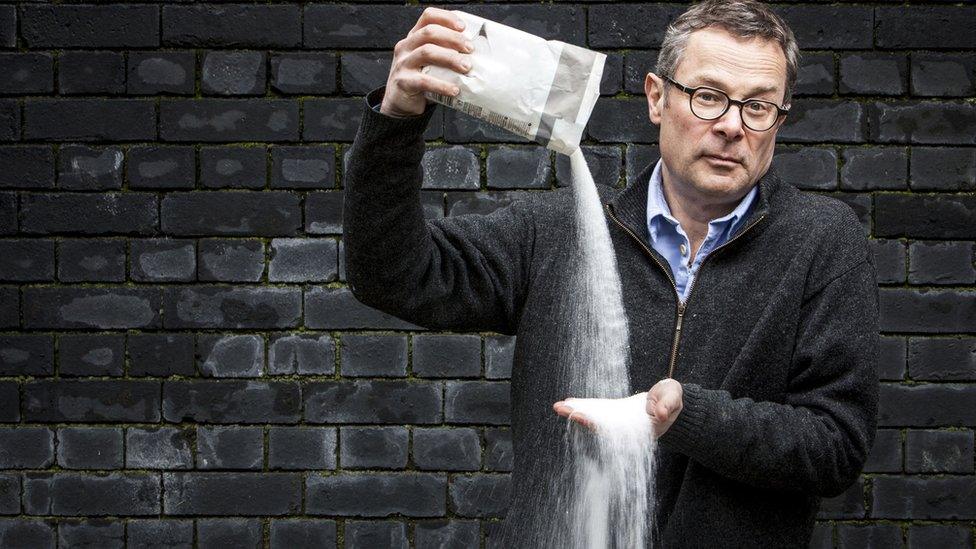Can we trust BMI to measure obesity?
- Published
- comments
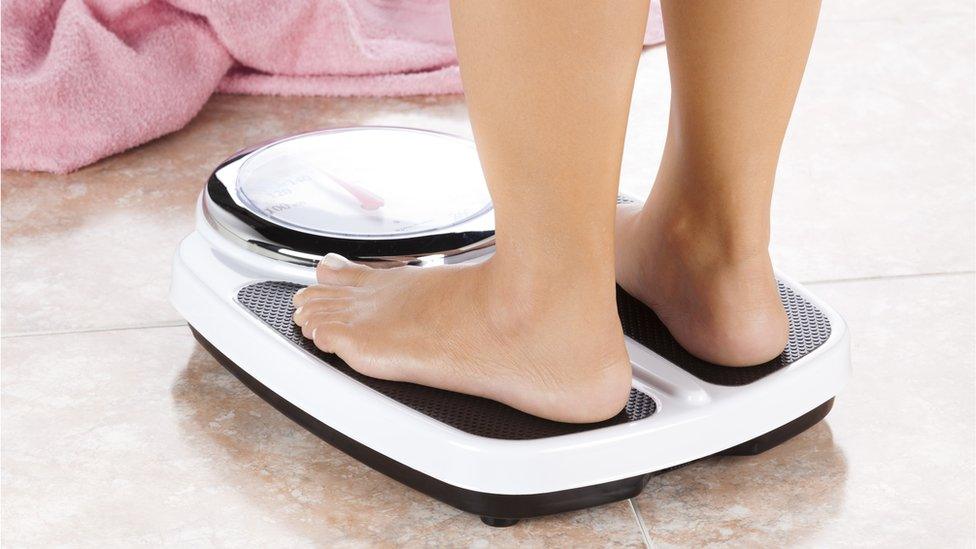
Knowing your weight and height is enough to calculate your body mass index
You've been using our fat calculator in your droves, working out your BMI (body mass index) and comparing the result with people in your age group and your part of the UK.
But a few people have been critical. They say using BMI to measure whether they are healthy, overweight or obese is misleading.
So what's the truth? Can we trust what it tells us?
Is BMI the best measure of obesity?
Firstly, it is a quick and easy way of working out whether you are in the healthy category by using two simple measures - weight and height.
Most doctors say it is the best method they have, it's pretty accurate, can be measured simply in clinic and is acceptable to patients.
"It works in the vast majority of people, the vast majority of time," says Prof Naveed Sattar, from the University of Glasgow.
"If two people are the same height and one has a BMI of 25 and the other a BMI of 40, then excess body fat is the reason."
Measuring BMI is also much more accurate and potentially less embarrassing than measuring someone's waist circumference, external, which is also a good guide.
BMI is calculated by dividing an adult's weight by the square of their height.
If you can't see the calculator tap or click here, external.
But does it work for everyone?
No, not all.
And this provoked a few comments along these lines: "Why, in this day and age, are you using BMI to tell people they are overweight? It is an outdated method that does not take into consideration muscle and actual health! I am extremely fit and healthy with a low body fat percentage, yet your BMI tells me (and many more self-conscious girls) that I am overweight!"
There are some people who carry a lot of muscle and little fat, like bodybuilders, boxers and rugby players.
Muscle is much denser than fat so they may end up with a BMI that classes them as obese, despite the fact they may be fit and healthy.
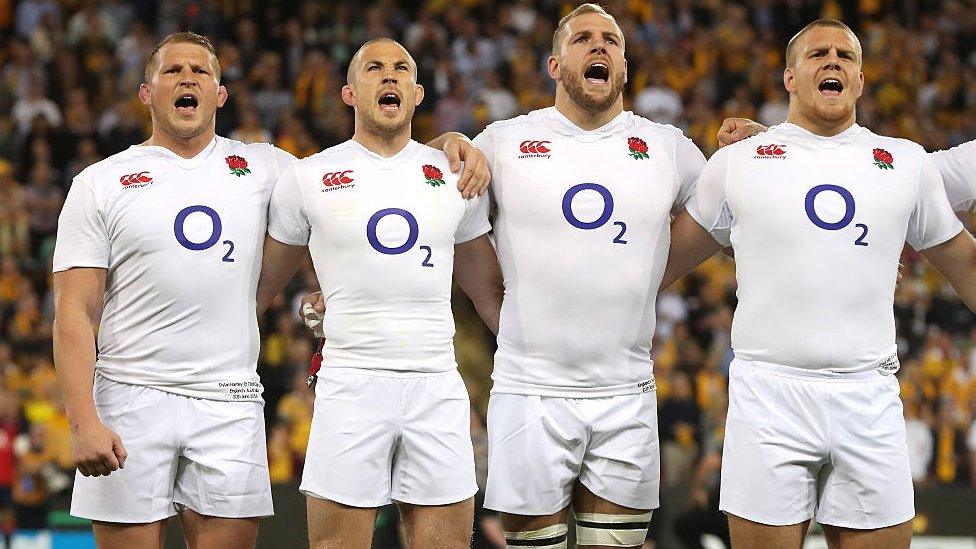
Some professional rugby players will be classed as obese because of their high muscle mass - but this is rare
But this is thought to apply to fewer than 1% of the population. Most people aren't extreme athletes.
Tim Cole, professor of medical statistics, at University College London Great Ormond Street Institute of Child Health, said BMI was "still extremely relevant".
"You don't see many bodybuilders around but you do see lots of people with large waists. Many people get exercised about that wrongly."
As people age, they lose muscle and may be classed in the "healthy weight" range even though they may be carrying excess fat. This is particularly true of smokers.
BMI also doesn't apply to pregnant women, and some ethnic groups have a higher risk of health problems at lower BMI levels.
Does BMI actually measure fat?
It can't measure how much excess fat we have in our bodies - as opposed to muscle and bone - because that would require some pretty complicated and expensive medical procedures, which just aren't practical to carry out on the whole population.
What it does do is give a healthy weight range for a particular height, taking into account variations in body shape - and it provides a good starting point for the majority of people.
It also doesn't measure how fat is distributed throughout the body (some fat is ok; too much in the wrong place is a risk).
Research shows that people who carry a lot of fat around their waists are at higher risk of health problems than those with more fat around their thighs and buttocks.
They are more likely to have fat stored in their abdomen around key organs, which could increase the risk of heart disease, stroke and type 2 diabetes.
So waist size may be a better way to monitor your health than BMI. That's why our calculator included an option for giving your waist size too.
"If people think they have lots of muscle mass, their waists should be lower for a given BMI - so they can easily check," says Prof Sattar.
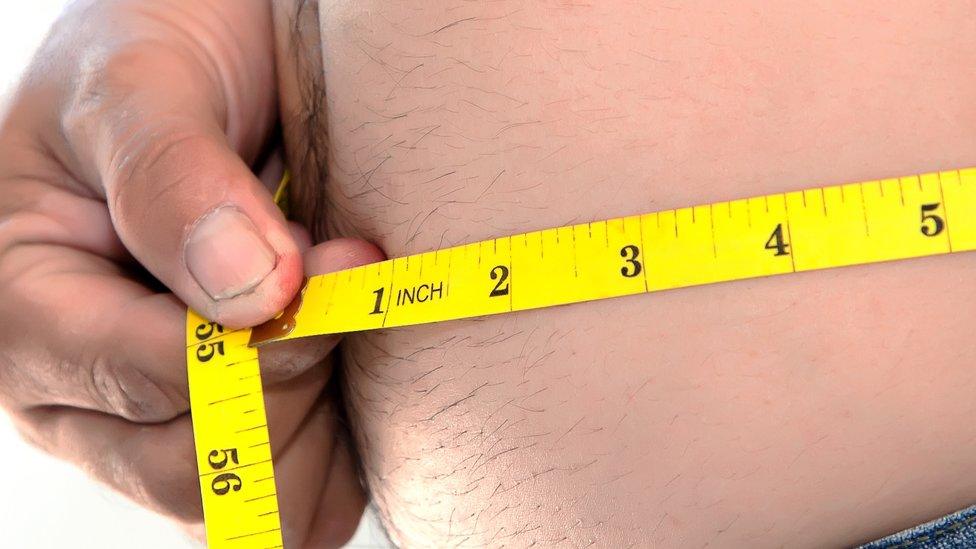
How to measure your waist
find the bottom of your ribs and the top of your hips
wrap a tape measure around your waist midway between these points
breathe out naturally before taking the measurement
Regardless of your height or BMI, you should try to lose weight if your waist is:
men - 94cm (37ins) or more
women - 80cm (31.5ins) or more
Can BMI tell us anything about disease risk?
On its own, it can't.
But doctors use BMI in conjunction with other measures - like blood pressure, cholesterol and family history - to work out an individual's risk of type 2 diabetes or heart disease, for example.
Body mass index is not specific to any particular health risk - and that's its strength, experts say.
However, a BMI above the healthy range or too much fat around the waist is known to increase the risk of serious health problems, including stroke and certain cancers.
Are we shaming those who are overweight?
One person said of the BBC calculator: "Your unscientific method of calculating 'fatness' is an unhelpful tool that dehumanises those who are obese or overweight, shaming them into losing weight and threatening their fragile relationship with their bodies."
There was no intention of shaming people - merely offering a way of finding out about your own weight because excess fat is the cause of an increased risk of a range of diseases.
If you think you would like to lose some weight, you should go and see your GP for advice first.
The best way to lose weight, external is to make small, realistic changes to your diet and physical activity.
- Published24 April 2018
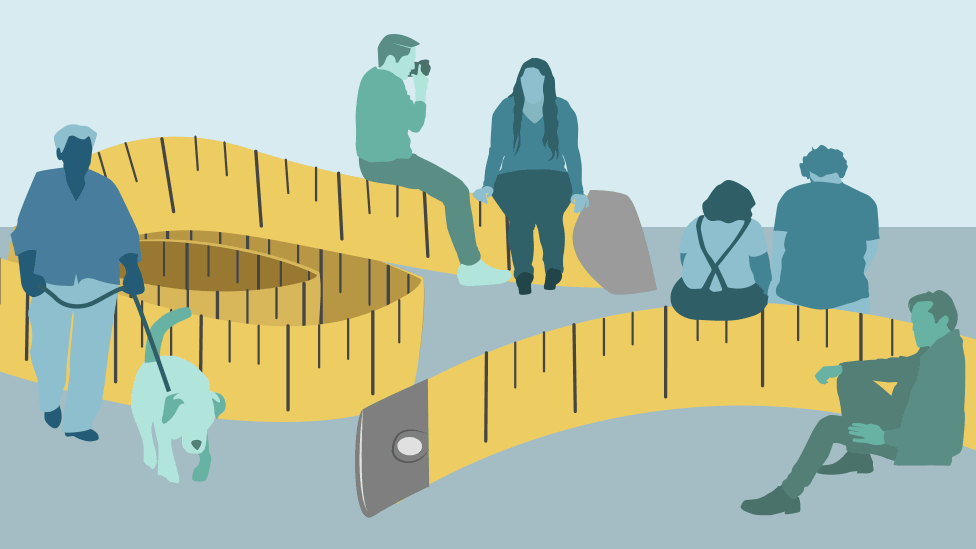
- Published24 April 2018
